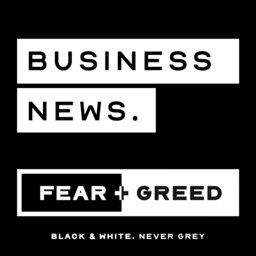Interview: CBA boss Matt Comyn on profit, rate cuts & tariffs
Commonwealth Bank yesterday announced a profit of $5.13b for the six months to the end of December.
CBA's Chief Executive Matt Comyn speaks to Ausbiz's Juliette Saly about the bumper result, cost of living pressure on customers, the impact of tariffs on the economy, and what he says to analysts who think CBA is overvalued.
Fear & Greed is proud to partner with Ausbiz, Australia's leading provider of live and on-demand video of the latest news in Australian business, markets, economy and startups. Sign up for free at ausbiz.com.au
You can watch this interview with Matt Comyn here.
In 1 playlist(s)
FEAR & GREED | Business News
Daily business news for people who make their own decisions, with business journalist Sean Aylmer an…Social links
Follow podcast
Recent clips

Dividend investing: How to pick quality income stocks
06:07

Hate legislation on shaky ground; air traffic chaos; Hollywood’s highest grossing actor
15:36

Our $9 billion export that nobody talks about
05:54
 FEAR & GREED | Business News
FEAR & GREED | Business News